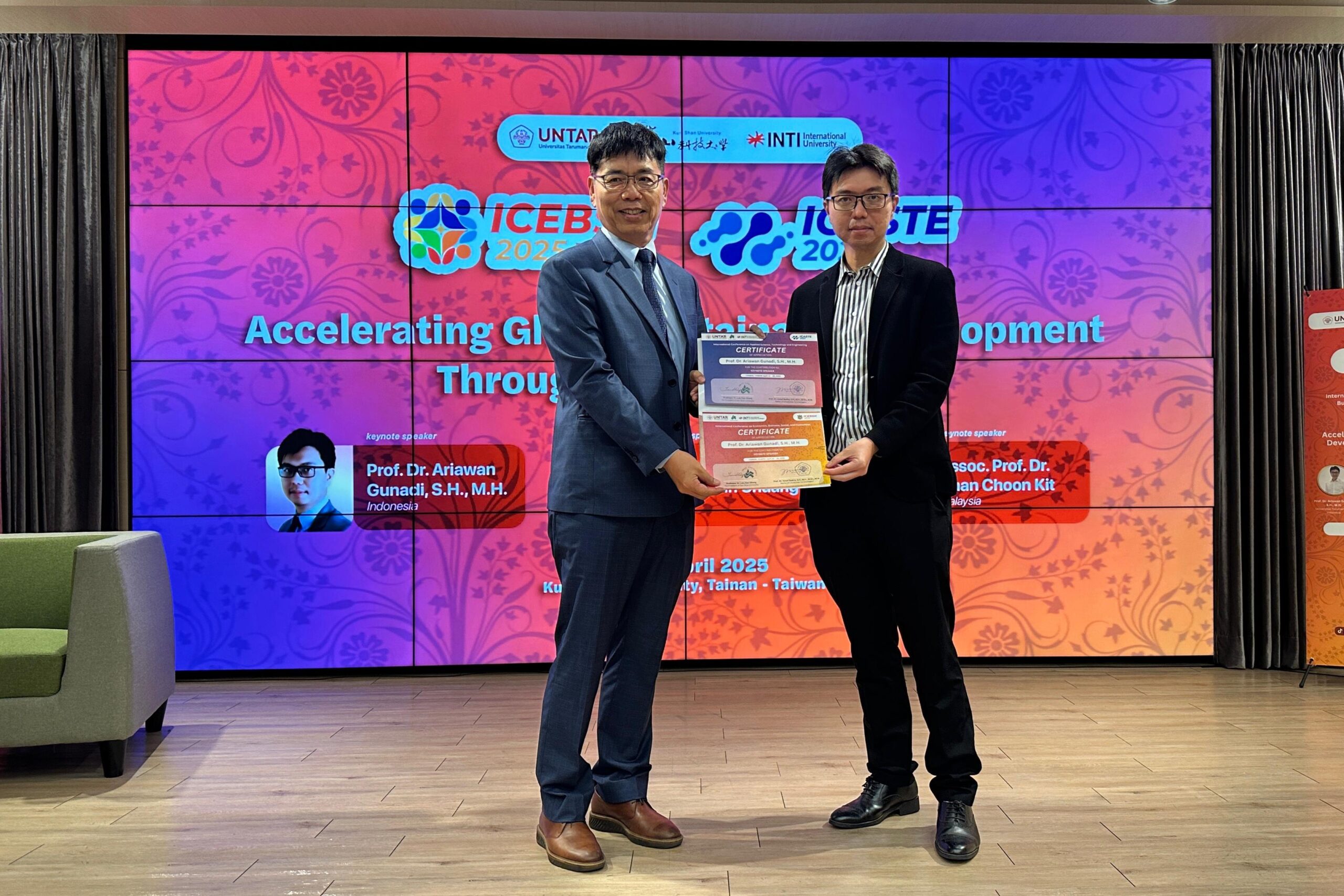Doc: Untar Public Relations
The Chair of the Tarumanagara Foundation Board, Prof. Dr. Ariawan Gunadi, S.H., M.H., was the keynote speaker at the International Conference on Applied Science, Technology, and Engineering (ICASTE) and the International Conference on Economics, Business, Social and Humanities (ICEBSH) 2025, held in person at Kun Shan University, Tainan, Taiwan, on Monday, April 14, 2025. With the theme “Accelerating Global Sustainable Development Through Higher Education,” the conference brought together academics, students, and experts from various countries to strengthen international academic networks and foster interdisciplinary collaboration.
In the session titled “From Education to Global Transformation,” Prof. Ariawan emphasized that education plays a central role in addressing global challenges. According to him, universities must be more than just centers of learning—they should become collaborative ecosystems involving academics, industry, government, and civil society to create tangible solutions for the future of the planet.
He highlighted examples of best practices from several global universities: Arizona State University with its sustainability curriculum and carbon laboratories, the University of Toronto with its integration of the SDGs into institutional planning, and the National University of Singapore, which promotes green technology accelerators.
Furthermore, Prof. Ariawan outlined four key strategies to strengthen the contribution of education to sustainable development: (1) innovative curricula based on cross-disciplinary SDGs literacy, (2) utilizing research for tangible solutions, (3) operational leadership as a model for sustainability, and (4) building strategic cross-sector partnerships.
He also emphasized the importance of preparing graduates for the transition to a green economy, through the mastery of skills such as climate-friendly infrastructure design, ESG reporting, carbon market advisory, and the integration of sustainability into investments.
As a tangible example of contributions, Prof. Ariawan presented various initiatives from Tarumanagara University, such as the electronic waste donation program (SDGs 12), the development of bamboo prosthetics (SDGs 3 & 9), international design collaborations with UiTM Malaysia, and the strengthening of the sustainability-oriented operational curriculum.
In terms of funding, he emphasized the need for innovations such as blended finance, public-private partnerships, and SDG-based endowment funds. He cited the Green Finance Lab at the University of Tokyo as a model that connects the academic world, regulators, and investors.
He added that universities must function as living labs in facing the era of the green and digital economy, by providing access to micro-credentials programs, executive training, and open education related to sustainability.
Equally important, the cultural dimension was emphasized as an integral part of sustainability. Local knowledge and traditional practices must be mainstreamed in higher education to strengthen cultural sustainability.
In closing his presentation, Prof. Ariawan emphasized that sustainability is not only based on innovation but also on moral leadership. “The primary task of educators is to shape global citizens with integrity and a global perspective—not just information providers, but agents of change in values,” he asserted. (VA/YS/AJ/VA)


